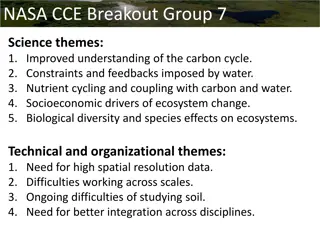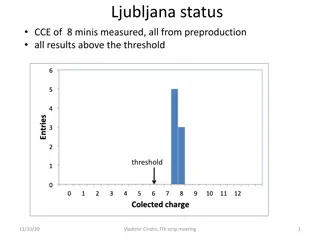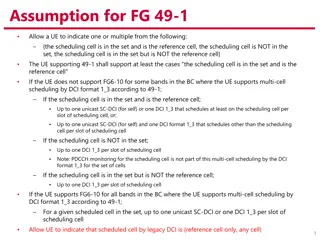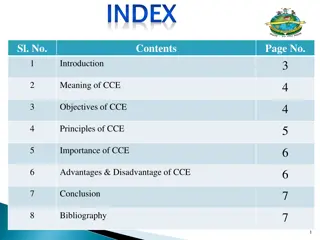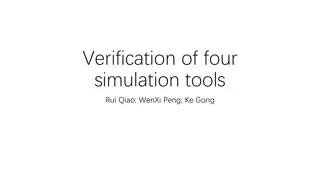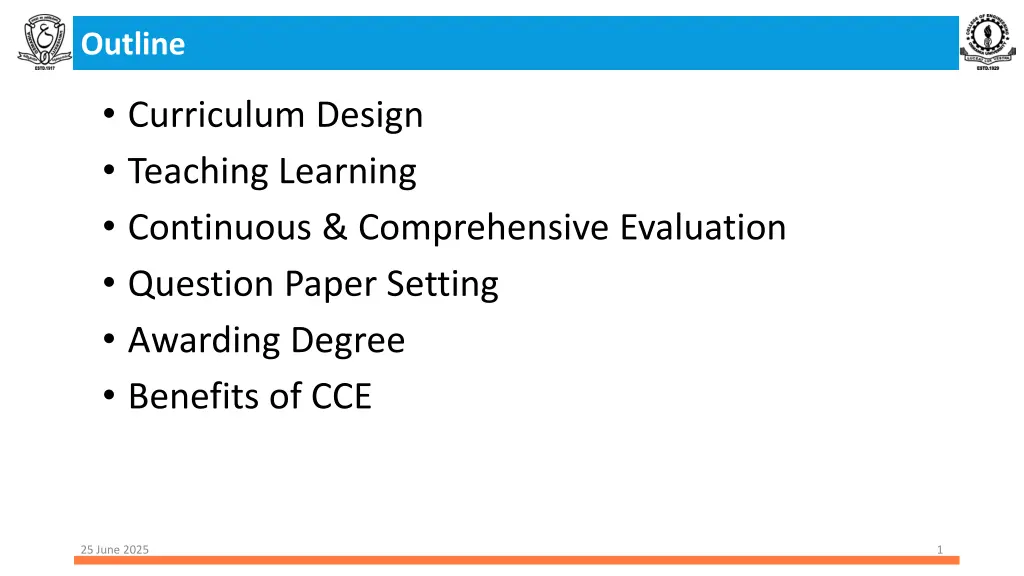
Revolutionizing Education: CCE Implementation Overview
Explore the evolution of curriculum design, teaching methodologies, continuous evaluation systems, and the benefits of Continuous & Comprehensive Evaluation (CCE) in education. Discover insights into Outcome-Based Education, industrial readiness programs, and case studies from reputed institutions. Stay informed about the latest trends shaping the educational landscape.
Uploaded on | 1 Views
Download Presentation

Please find below an Image/Link to download the presentation.
The content on the website is provided AS IS for your information and personal use only. It may not be sold, licensed, or shared on other websites without obtaining consent from the author. If you encounter any issues during the download, it is possible that the publisher has removed the file from their server.
You are allowed to download the files provided on this website for personal or commercial use, subject to the condition that they are used lawfully. All files are the property of their respective owners.
The content on the website is provided AS IS for your information and personal use only. It may not be sold, licensed, or shared on other websites without obtaining consent from the author.
E N D
Presentation Transcript
Outline Curriculum Design Teaching Learning Continuous & Comprehensive Evaluation Question Paper Setting Awarding Degree Benefits of CCE 25 June 2025 1
Design of Curriculum: Outcome Based Education (OBE): 1989 WA India is officially a Member of Washington Accord Signed on 13th June 2014 (NBA) Course Objectives (COs) Course Outcomes (COs) Programme Educational Objectives (PEOs) Programme Specific Objectives (PSOs) 25 June 2025 2
Teaching and Learning: Outcome based Practical Oriented Industrial visits Internships Mini Projects Skill development Minimise the gap between Industry and Institution Experiential learning ..etc -----Industry readiness 25 June 2025 3
Continuous & Comprehensive Evaluation Paradigm shift: Year Wise to Semester System Introduction of Class Tests/Sessional/Internal Tests/Mid- SemTests Credit/Grading System (2010) Choice Based Credit System CBCS (2016) AICTE Model Curriculum (2017) Revised Curriculum (2022)--- Major/Minor/Honors degrees 25 June 2025 4
Case Studies: 1. NIT Warangal Following are the Salient points: Examination marks considered are Internal examination are 60 Marks. and external examination are 40 After evaluation, only grades will be sent to examination branch and no marks will be sent to the examination branch. Marks for internal and external examinations will be shown to the students after the evaluation. After declaration of results if any grievances from students, the Department appeal committee will check the external exam evaluations. Class Internal Examination (CIE): Teacher has flexibility to conduct 4 or 5 tests in a semester and students will be informed well in advance about the Evaluation process and concerned teacher will show the answer scripts to the students after evaluation 25 June 2025 5
Case Studies: Case Studies: --- --- contd contd 2. BITS Hyderabad Following are the Salient points: Every component is considered for grading in B.Tech. External and internal evaluation by teacher only. Quizzes, seminars and surprize tests are compulsory in a process of internal and external evaluation. No choice in the question paper pattern has been given as it is relative grading system, and it is also Open Book Examination System. No standard question paper pattern has been followed for B.Tech. and M.Tech. for external and internal evaluation. 25 June 2025 6
Case Studies: Case Studies: --- --- contd contd 3. IIT Hyderabad Following are the Salient points: In the process of B.Tech. and M.Tech. evaluation no standard procedures have been followed. It is the combination of both absolute grading system and relative grading system. Teacher is given full freedom to follow his/her own interpretations in examination process. No standard guidelines are given to the teacher for an evaluation process. No external examination is conducted for each course all the assessment for the subjects will be done internally by teacher only. One exam and one group discussion is compulsory. 25 June 2025 7
Awarding Degrees Completion of program in Blended modes 2 years in CBCS and 2 years Non CBCS etc. Benefits of CCE --- Transitory Regulations required 25 June 2025 9
Benefits of CCE---- Conclusion Assessment of the Students from day one Improvement in Teaching & Learning Improvement in student attendance to the class Transparency and Accountability Achieving outcomes of the program and skill development International Mobility of the Students Timely Declaration of the results Mandatory requirements of Regulating bodies UGC, RUSA etc 25 June 2025 10
25 June 2025 11

